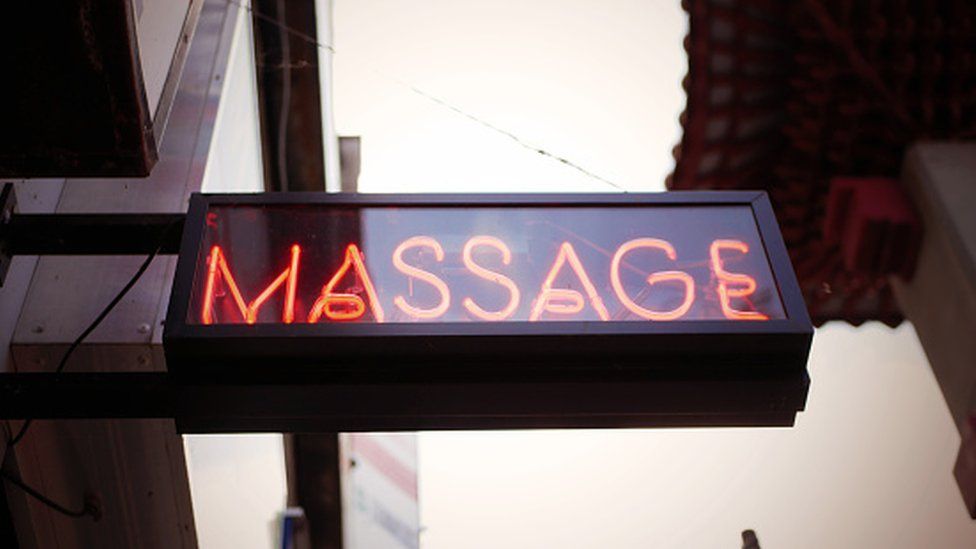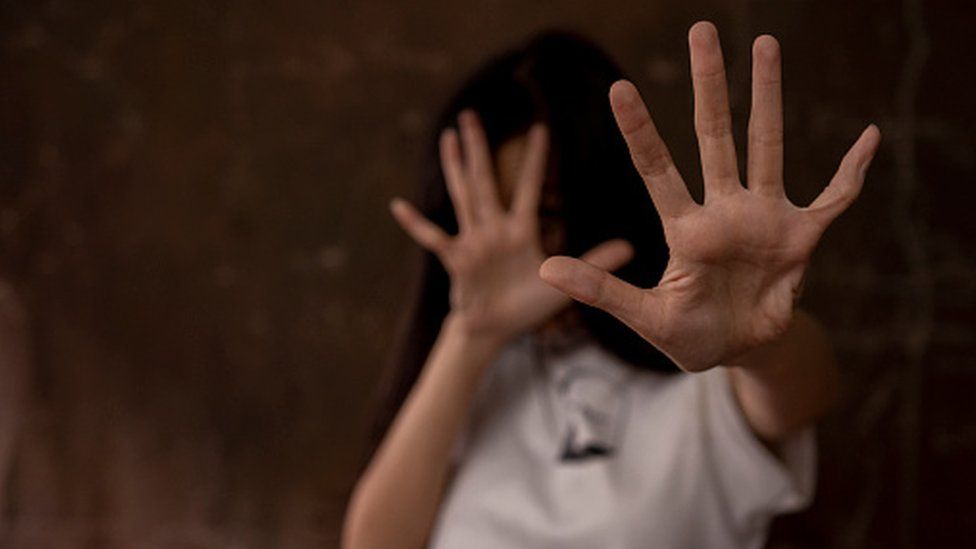
The Nepalese children made to work in bars and clubs
Campaigners say many of the establishments that employ children are fronts for sex trade
Children are being exploited in Nepalese bars and folk music venues, some of which are fronts for the sex trade. By some estimates, thousands of minors are affected. The BBC’s Geeta Pandey reports from Delhi.
When Rita migrated from her village in Nepal to the capital, Kathmandu, she thought she was escaping poverty.
Back in her village, Rita – whose name we have changed for her protection – lived with her alcoholic mother and siblings. Her father had moved to Malaysia for work and abandoned the family.
“At first he used to send us money, but then he stopped,” Rita said. “We did not have enough land, so I came to Kathmandu when I was 12 or 13.”
Her first jobs in Kathmandu included working in a brick factory, cleaning and washing utensils in a home, working in a hotel kitchen and being a shop assistant.
The pay was meagre, work backbreaking and quite often her abusive and predatory male co-workers tried to touch and grope her, she said.
At 14, Rita got a job in a restaurant where she had to sit, eat and drink with customers.
“The customers smoked hookah and drank alcohol,” she recalled. “They would touch my hands, say vulgar words, but I couldn’t object. Some of them even wanted to kiss me. I used to escape saying that I wanted to use the toilet.”
Sharing her story with campaigners from the Child Labour Action Research programme (Clarissa), funded by the British government, Rita detailed incidents where she was forced to drink alcohol and where men took her to nearby guest houses or rented rooms and offered her money in return for sex.
Campaigners say Rita is one of hundreds, possibly thousands, of Nepalese children, some as young as 11, who are trapped in the country’s adult entertainment sector, engaged in a terrible form of child labour.
Professor Danny Burns, Clarissa director and professor at the Institute of Development Studies at the University of Sussex, says when we talk about child labour, a lot of the discussion focuses on big firms and global supply chains.
“But the worst forms of child labour are in small businesses and family-owned businesses – the kind of places that employ children like Rita,” Prof Burns told the BBC.
 IMAGE SOURCE,GETTY IMAGES Most of the girls and young women who work in these joints say they have found themselves in exploitative situations
IMAGE SOURCE,GETTY IMAGES Most of the girls and young women who work in these joints say they have found themselves in exploitative situationsNepal has 1.1 million children aged between five and 17 years engaged in child labour and 0.22 million children work in hazardous industries, even though employing children is illegal in the country.
Kathmandu has pledged to eliminate child labour by 2025 in tandem with the UN goal to end child labour in all forms and also set an ambitious target to end the worst forms of child labour by 2022.
Minister for Women, Children and Senior Citizens Uma Regmi told Binita Dahal of the BBC Nepali service that the “government is determined to meet the target”.
“We have little time left, but we will make all efforts to end the worst forms of child labour by 2022,” she said.
But campaigners say that to do that, Nepal must focus on small businesses in the informal sector, especially the adult entertainment sector.
Pragya Lamsal, a researcher at Clarissa in Kathmandu, told the BBC that the charity had collected and analysed testimonies of nearly 400 children employed in the sector.
“We found that in a majority of the cases, the children had moved from rural areas to Kathmandu, they were recruited by informal intermediaries such as friends, relatives and neighbours, and most of them ended up working in massage parlours, dance bars, guest houses or seedy restaurants,” she said.
Sudhir Malla, the head of Clarissa in Nepal, said most of the children came from poor families or broken homes and in the city, they are hired mostly by “dohori restaurants” – establishments that claim to promote folk music.
“There are some genuine establishments, but many smaller places in the dark underbelly of the city are seedy joints and fronts for sex trade. They hire young women and girls to serve alcohol, wait at tables, work in hookah bars, dance bars and massage parlours,” he said.
Many of these places operate under the radar, he added – functioning out of basements, street corners and private apartments.
“These establishments are required by law to register and renew their documents regularly and provide details of their workers to the authorities. Many register initially but don’t renew their registration and there is little incentive or repercussion if they do not. Then there are those who do not register at all.”
 IMAGE SOURCE,GETTY IMAGES During Covid, the children had to make very dire choices because it was a matter of their livelihoods
IMAGE SOURCE,GETTY IMAGES During Covid, the children had to make very dire choices because it was a matter of their livelihoodsSo, the children work without formal contracts and are not given any job descriptions or fixed salaries.
Ms Lamsal said most of the girls and young women who work in these places say they have found themselves in exploitative situations.
“The girls were told that if guests ran up a big bill, their own tips would be higher,” she said. “Most of them are young and without formal education and, in most cases, they have no option because their families are dependent on the money they earn. They are very vulnerable and many of them slip into situations which are exploitative.”
The girls also have to deal with the stigma that surrounds this kind of work,” Ms Lamsal said. Most don’t even tell their parents, so in cases of abuse they can’t go to their families or the police for help. Many also don’t report abuse because of fear of losing their jobs.
And Covid-19 made their situation a lot worse, Mr Malla said.
“During the pandemic, the government forced the sector to shut down, but many just went deeper underground,” he said. “And the children had to make very dire choices. It was a matter of their livelihoods, they had to pay rent, they had to get food, and in cases where they are the breadwinners, they had families to support.”
According to Prof Burns, Covid has reversed progress, and no country with a major child labour problem is on course to end it by 2025.
“For long, there were trends towards a decrease, but in the past year and a half, there has been a significant increase in the number of child labour in all the countries where the problem exists,” he said.
“In the long run, it is critical to focus on taking children out of the worst forms of child labour. But there would always be children who’ll do this job because they’re hungry. So, in the short term, we have to improve their work conditions. That’s the best we can do.”
Minister Uma Regmi said it was her government’s “priority to reach out to these children”, adding that those who need help “can contact us through our helpline numbers”.
“We are collaborating with various agencies to find out about children working in dangerous situations,” she said. “Once we get the facts, we will coordinate with the home ministry to make those illegal operators accountable and punish them.”
